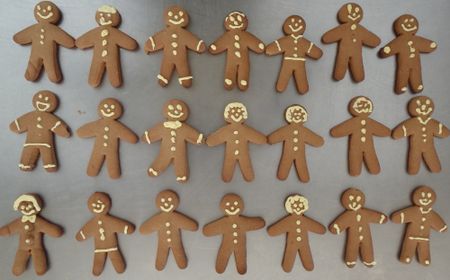ERO/Making the change
From WikiEducator
< ERO
Moving to democracy
- Aim of these 6 lessons:
- To assist teachers in the move towards a more democratic class/school within a state funded system
Sharing the knowledge with a class/school
- Explain how you as a teacher have done some new thinking
- Finding out about natural learning, democratic education and an envirethical curriculum
Natural learning
Lesson 1
- Explain how we will be studying "learning in a natural way"
- Ask if anyone has an idea what natural learning is?
- Thank only students for answers whether correct or incorrect
- Ask if anyone has an idea what natural learning is?
- The fable of the Gingerbread Child
A childless couple bakes a gingerbread child who leaps from the oven and runs away. The couple give chase but fail to catch the child. The gingerbread child then outruns several farm workers and farm animals while taunting them with the phrase: Run, run as fast as you can; You can't catch me, I'm the Gingerbread child. A fox tricks and then eats the gingerbread child by offering to carry the child across a river away from the pursuers.
- The gingerbread child was a very fast natural learner,
- Standing up and jumping straight from the oven
- Singing, taunting and out-running pursuers
- Able to talk to foxes
- Discuss reasons for
- Why the gingerbread child came to a sticky end?
- Not learning from others
- Listening to a wily fox
- Who the fox may represent?
- Tricksters who want something from you - card sharps, advertisers, politicians, dentists :)
- An authority that is not questioned - blindly following
Explain that only gingerbread children get eaten by foxes ;)
Lesson 2
- View
- Hole In The Wall Experiment by Sugata Mitra
- Previewing for pertinent parts as video is quite long for younger children
- Hole In The Wall Experiment by Sugata Mitra
- Discussion points
- How children who have never seen a computer can use one?
- How children teach themselves in groups how to surf the internet?
- Why children reading and then speaking a foreign language can explain detailed concepts
Explore how natural learning is more effective in social groups Remind the students about the gingerbread child, who had no social group to learn from!
- Questions:
- Are there other types of natural learning - walking, talking, whistling, thinking, remembering, imagining....
- Do other mammals, reptiles learn naturally - seagulls diving for fish, cats grooming themselves....
- Demonstrates its effectiveness as the number one way of learning across species
- How do we know whether other species can imagine, think, feel?
- Dogs dreaming, dolphins rescuing a drowning calf or human....
- Why does working in a social group help natural learning - collaboration, sharing, bouncing ideas....
- Do animals have social groups
- Sheep flock for protection, whales sonar click for communication....
Explain that educationalists (people who study learning) say: Natural, child centred social learning is best :)
Democratic learning
Lesson 3
- Democratic schools are defined as:
- Schools in which young people have the freedom to organise their daily activities, and in which there is equality and democratic decision-making among young people and adults
- Discuss equality
- Are all people equal?
- Are the people in this class/school equal?
- View video
- Discussion starters
- What is intelligence?
- The younger the child the greater their ability is as divergent thinkers?
- Why do we have schools?
- Medication of children?
- What were the connections with the gingerbread child and the fox?
- Social learning vs prescribed learning
Explain that to learn naturally its best to be involved in the process
Lesson 4
- Talk about how there are many democratic schools around the world
- View
- Discuss the positive aspects of the school
- Seek similarities with own situation
Envirethical Curriculum
Lesson 5
- Explanation that schooling in the past was different
- Compare this NZ class of 1960 to present class
- Good, changed, harder, fun, impossible, scary...
- Discuss what this class knew of the world
- Local, further afield, man made, natural....
- Talk about how we find out about our world
- Internet, telephones, TV, radio...
- Ask who knows more about
- Natural world - seasons, animals, plants, rivers....
- World events - poverty, tsunamis, human rights....
Envirethical curriculum - learning and acting on issues that affect us Environment - local streams, global rainforests, African elephants.... Ethical - volunteering to help elderly neighbours, donating to a cause, using fairly traded products
Lesson 6
- Revise previous lessons
- Discuss whether it would be good to be involved in similar projects from the videos
Bike repairs, studying nature, creating pottery, computer technicians, circus, dancing, collaborating, singing, writing poetry....
- Ask/discuss - if they are already natural learners?
- Ask/discuss - if they would like to set up a democratic classroom?
- Ask/discuss - how envirethical ideas will be part of their learning?
- Sitting in a big circle
- Ideas in a suggestion box
- Vision map on blackboard
- Talking in social groups for a period of time
Models of other democratic classrooms are irrelevant at this point
- As the democratic class that is established from here will,
- depend on the understandings made of above
- the place on the democracy continuum the class/teacher/school started at
Next step
- I promoted the use of a Class Charter with my own class
| Work in progress, expect frequent changes. Help and feedback is welcome. See discussion page. |
